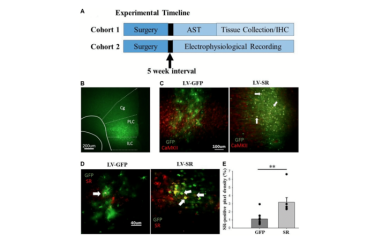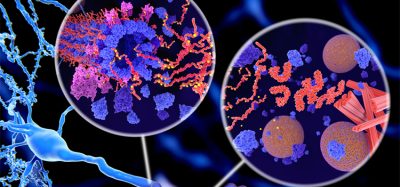Improved cognitive function in rats with serine racemase upregulation
Posted: 20 April 2023 | Izzy Wood (Drug Target Review) | No comments yet
US researchers have found that increasing the expression of the enzyme serine racemase in the prefrontal cortex of middle-aged rats can enhance cognitive function.


Researchers from the University of Florida’s McKnight Brain Institute, US, have discovered that upregulating the expression of the enzyme serine racemase (SR) in the medial prefrontal cortex (mPFC) of middle-aged rats can improve their cognitive flexibility and attentional function.
The study, published in Aging, aimed to investigate whether enhancing N-methyl-D-aspartate receptor (NMDAR) function via increased SR expression in middle age may improve performance on a prefrontal cortex-mediated task sensitive to aging.
Middle-aged male Fischer-344 rats were injected bilaterally in the mPFC with viral vector, SR or control. The rats were trained on the operant attentional set-shift task (AST) to examine cognitive flexibility and attentional function. Results showed that the rats injected with SR exhibited a faster rate of learning compared to controls during visual discrimination of the AST. However, extradimensional set shifting and reversal were not impacted.
Immunohistochemical analyses demonstrated that the injection of SR significantly increased its expression in the mPFC. Electrophysiological characterisation of synaptic transmission in the mPFC slices obtained from the rats indicated a significant increase in isolated NMDAR-mediated synaptic responses in those that received the SR injection.


Experimental timeline and confirmation of lentiviral transfection and upregulation of SR expression in mPFC.
(Credit: 2023 Yegla et al.)
The study’s lead author, Brittney Yegla, said, “The results from this study support the beneficial effects of the D-serine pathway involvement in NMDAR-mediated transmission and cognitive function, expanding the literature to emphasise its role in not only the hippocampus but also the PFC. Thus, targeting this pathway could pose a potential route in reversing age-related cognitive decline and should be considered for future research.”
The findings suggest that prefrontal SR upregulation in middle age rats can improve learning of task contingencies for visual discrimination and increase glutamatergic synaptic transmission, including NMDAR activity. The research highlights the role of the D-serine pathway in NMDAR-mediated transmission and cognitive function and could potentially be used to reverse age-related cognitive decline.
Related topics
Enzymes, Neurosciences, Targets, Vaccine
Related conditions
cognitive decline
Related organisations
University of Florida’s McKnight Brain Institute
Related people
Brittney Yegla








